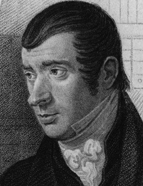

It was thanks to a historical memoir written by his brother, D. António da Visitação, that he was admitted to the Academia das Ciências de Lisboa by the Duke of Lafões (1719-1806) in 1800. Lafões, A ssistant S ecretary of S tate to the regent D . João (the future King João VI), used this report to prove that, when faced with the dilemma of which was the most fruitful alliance that Portugal could enter into, that of the British monarchy or that of the French republic, the latter would be preferable, given ‘the little faith and loyalty with which the English ha ve always behaved towards us’ ( Idem , op. cit. , pp. 26-27). Another memoir by D. António da Visitação on the advantages of studying nautical geography in Navy classes also earned him the appointment by the future Count of Linhares as a member of the Sociedade Real Marítima de Lisboa [Royal Maritime Society of Lisbon].
This knowledge of history, placed at the service of political power and certain strategic views, was one of the characteristics of Liberato ’ s intellectual career, just as it was his brother ’ s (and indeed several other contemporary journalists and academic ian s). Appointed Grand Orator of the Masonic lodge Fortaleza [Fortress] and a member of the Academ y in the same year, 1804, Liberato thus began a period of more than thirty-five years in the public eye, several of which were spent banished inside and outside the kingdom.
He was suspected of being Francophile during the Noblemen ’ s Conspiracy (1805-1806) and in 1809. He was , therefore , imprisoned without charges for two years (1811-1813). In 1813 , he renounced his ecclesiastical status and went into exile in Great Britain, where he used his intelligence on publications such as the Investigador Português em Inglaterra [Portuguese researcher in England] (1814-18), in the employ of the Count of Funchal and later as the sole editor of O Campeão Português [The Portuguese Champion] (1819-21). With this newspaper , he sought to prepare a change in mentalities and institutions in Portugal, which would eventually come about with the revolution of 24 August 1820.
This work is financed by national funds through FCT - Foundation for Science and Technology, I.P, in the scope of the projects UIDB/04311/2020 and UIDP/04311/2020.
